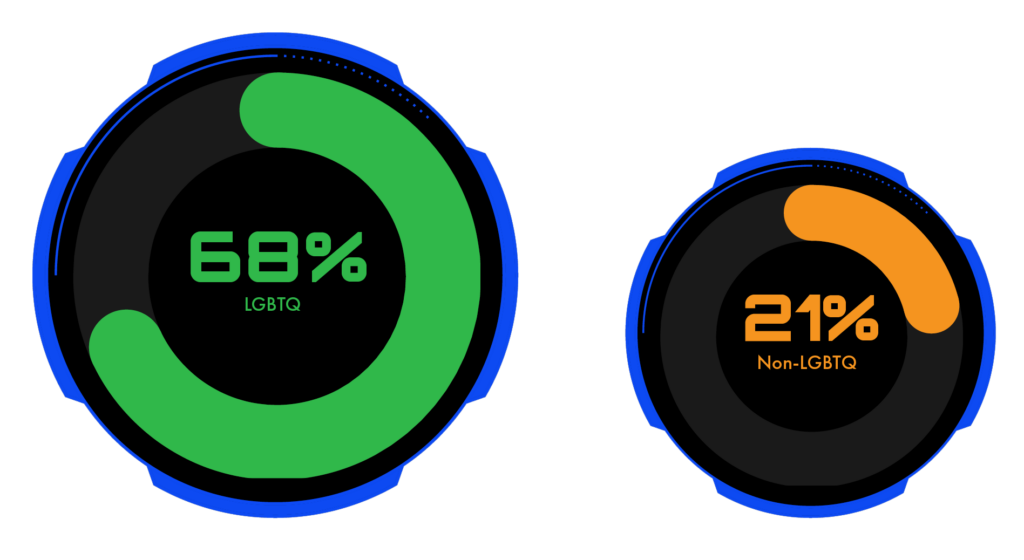The Case for LGBTQ Inclusion in Games
Games offer the opportunity to explore fantastical worlds, experience narratives in new ways, simulate day-to-day life, and recreate real events ranging from key historical moments to contemporary sporting events. As LGBTQ people exist in our world, they must be included in these imagined or recreated worlds. Not only is seeing LGBTQ representation in games important to LGBTQ gamers, it is clear from our data that non-LGBTQ gamers are more open to playing games with LGBTQ content than the industry might assume.
Being able to play characters that match their gender and/or sexual orientation matters to LGBTQ gamers. 72% of LGBTQ gamers say that seeing characters with their gender identity and/or sexual orientation represented well makes them feel better about themselves, and the percentage is even higher for younger age groups (78% of 13–17-year-olds).
LGBTQ gamers are 1.4 times more likely than non-LGBTQ gamers to buy or play a game because it allows them to play as a character that matches their gender.
LGBTQ gamers are seeking more representation in games, as are non-LGBTQ gamers. 68% of LGBTQ gamers wish there were more prominent LGBTQ storylines in games. While they are 3.2 times more likely than non-LGBTQ gamers to believe this, 1 in 5 (21%) non-LGBTQ gamers, and 29% of gamers overall also wish there were more prominent LGBTQ storylines in games. This sentiment is largely driven by younger gamers (under 34) and heavy/ medium spenders.
Quality of representation matters to both LGBTQ and non-LGBTQ gamers as well. 70% of LGBTQ gamers and 46% of non-LGBTQ gamers are less likely to buy or play a game if it contains harmful tropes or stereotypes about the LGBTQ community. Notably, 51% of heavy/core gamers are less likely to buy or play such a game.
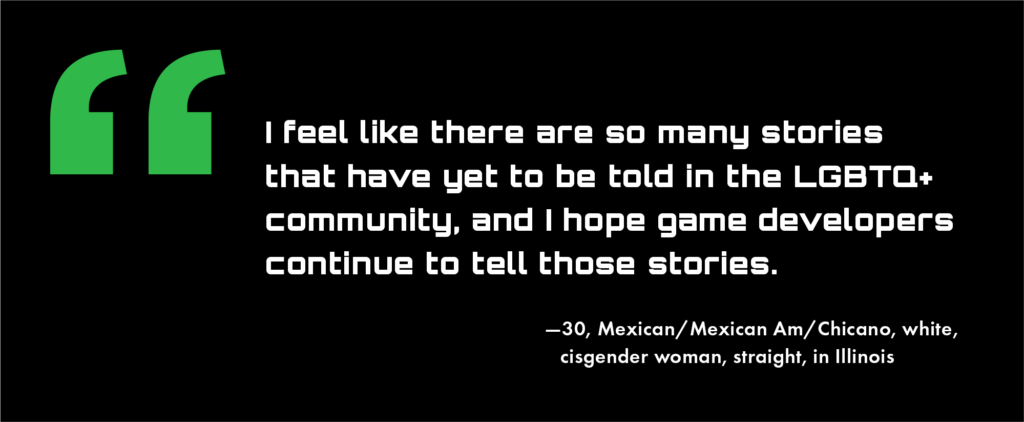
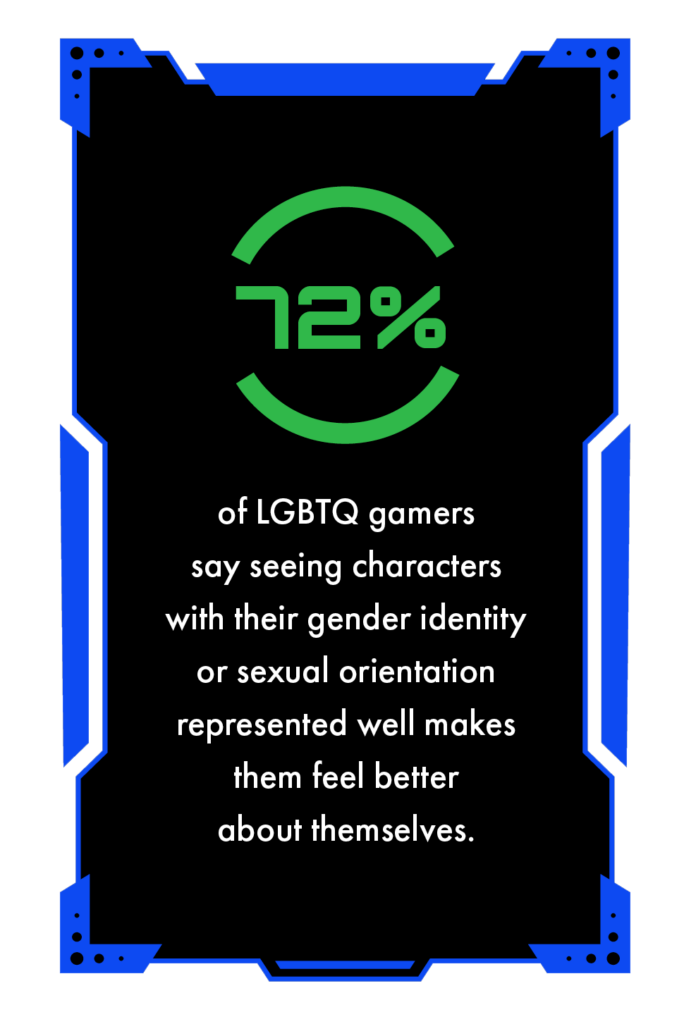
Desire to see more LGBTQ representation is highest among younger gamers
All gamers
Gamers by age that agree: I wish there were more prominent LGBTQ characters and storylines in games
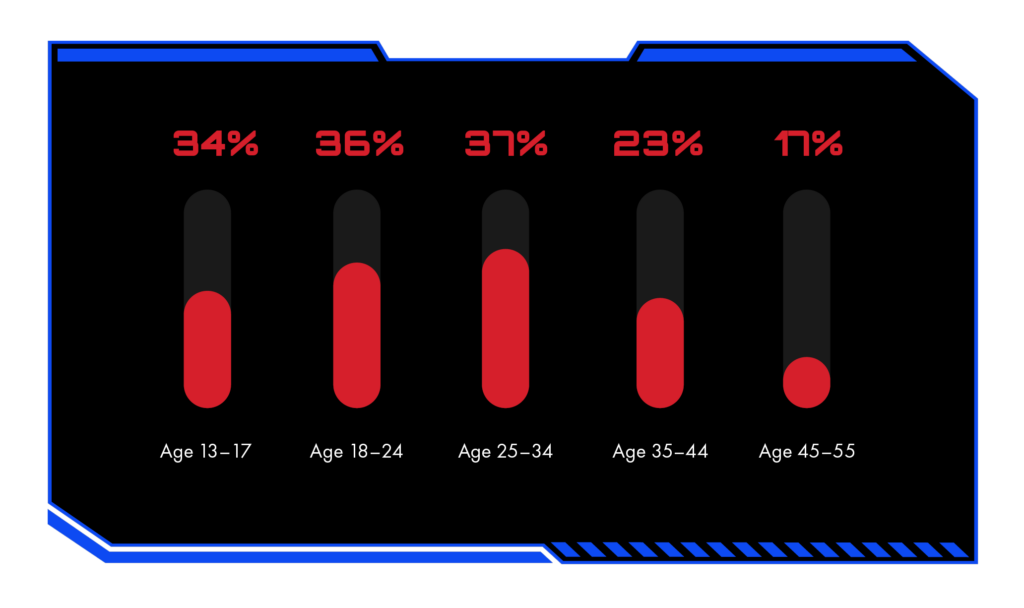
LGBTQ gamers care more about being able to play as their own gender
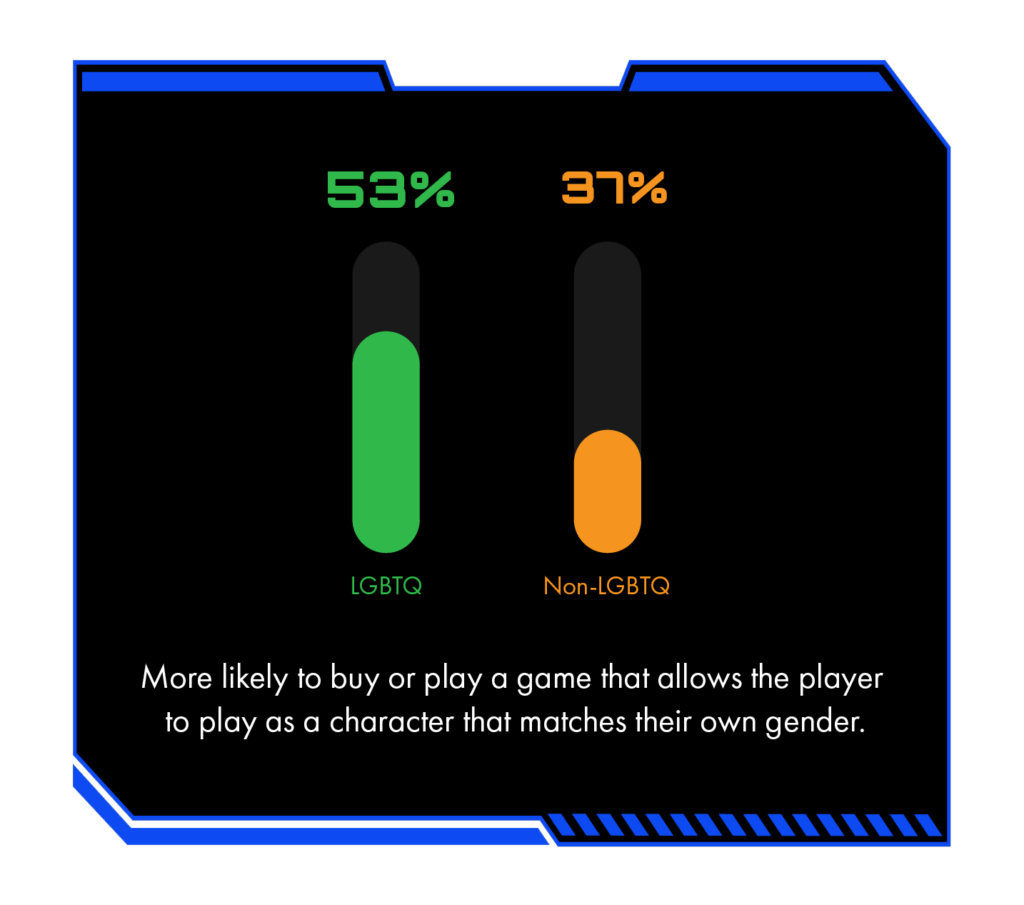
A majority of LGBTQ gamers, and 1 in 5 non-LGBTQ gamers, wish there were more prominent LGBTQ storylines in games
Agree: I wish there were more prominent LGBTQ storylines in games
